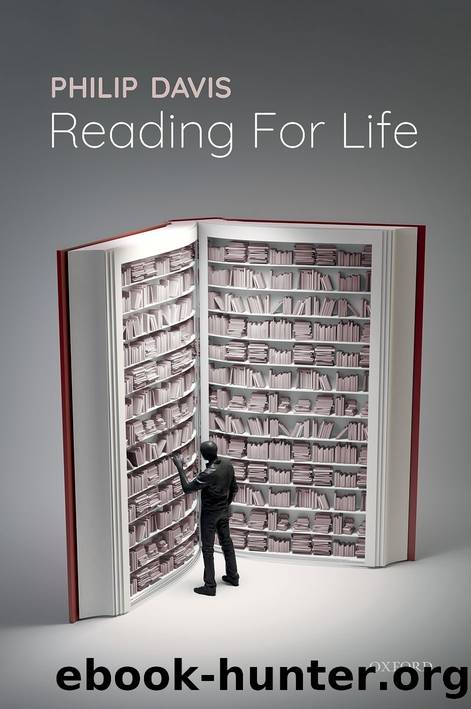Reading for Life by Philip Davis

Author:Philip Davis [Davis, Philip]
Language: eng
Format: epub
ISBN: 9780192548009
Publisher: OUP Oxford
Published: 2020-01-10T00:00:00+00:00
Does every promise, ‘born in light and dying in dark’, have to end up being a disappointment, measured only by some narrative account of its eventual result? There is instead here a simple example of our power of invention—that the given sequence of Day into Night within which we seem naturally to live could also become for us, at some key boundary-point hard to identify, the sequence Night into Day instead, without any other change in the order of things. So it was in Claudius’ ‘Pray can I not’ instead of ‘I cannot pray’: the basic elements in an intractable situation may remain the same but the form—what we may do with them—can be made different. And that is so even if ‘Pray can I not’ only further realizes the anguish of not being to start again, since it is at least in place of flatly stating the negative fact. Once again, Clive thinks that this change of form if not content suggests some basic paradigm, though he cannot quite say for what. Perhaps (he goes on), for poetry out of the materials of prose, and whatever that stands for beyond poetry itself; for variation and inventive adaptation by getting (what he calls) ‘out from under’; for some created room for manoeuvre and discretion in human beings. To Clive, such chinks of possibility offer some hope for mental health, in contrast to the stuck-ness of a world that ‘always seems about to give in’.
In fact Clive is interested in how far conceivably we might be able to change the very form in which we do our thinking. In our unacknowledged blindness, something may be very wrong with the current frameworks of understanding, he thinks, which is why he reads literature to find the surprising or uncharted. One form he says he sometimes dislikes, however, is what has been called ‘narrative medicine’, even though it comes out of the same humanizing movement that looks back to John Berger. He is referring to the common belief that people must be able to have access to their own story, that they suffer without it, and that one way to realize it is by telling it to their physician who won’t otherwise recognize their individual depth. The doctor in him knows the value of all this but often as the relating of the story goes on, Clive complains, he finds people losing their initial insight, thinking it down into a more conventionally normalized and stereotyped account of their lives. He knows he still must listen hard and try to interpret the ostensibly banal, but he is waiting for the flashes and discontinuities of insight. ‘I want the clue of the lyric glimpse, the vestige or the fragment to begin from, not the self-conscious spelling out of an over-clear narrative’, he says.15 In that respect, he notices the little boundary word ‘to’ in Kennelly poem: ‘Begin to’ ‘Begin again to’. It is that little insertion of ‘to’ which, less conventionally than normal, opens up the poem.
Download
This site does not store any files on its server. We only index and link to content provided by other sites. Please contact the content providers to delete copyright contents if any and email us, we'll remove relevant links or contents immediately.
Blood and Oil by Bradley Hope(1561)
Wandering in Strange Lands by Morgan Jerkins(1423)
Ambition and Desire: The Dangerous Life of Josephine Bonaparte by Kate Williams(1394)
Daniel Holmes: A Memoir From Malta's Prison: From a cage, on a rock, in a puddle... by Daniel Holmes(1334)
Twelve Caesars by Mary Beard(1316)
It Was All a Lie by Stuart Stevens;(1297)
The First Conspiracy by Brad Meltzer & Josh Mensch(1170)
What Really Happened: The Death of Hitler by Robert J. Hutchinson(1165)
London in the Twentieth Century by Jerry White(1148)
The Japanese by Christopher Harding(1133)
Time of the Magicians by Wolfram Eilenberger(1127)
Twilight of the Gods by Ian W. Toll(1121)
Cleopatra by Alberto Angela(1094)
A Woman by Sibilla Aleramo(1093)
Lenin: A Biography by Robert Service(1079)
John (Penguin Monarchs) by Nicholas Vincent(1068)
The Devil You Know by Charles M. Blow(1027)
Reading for Life by Philip Davis(1024)
The Life of William Faulkner by Carl Rollyson(984)
